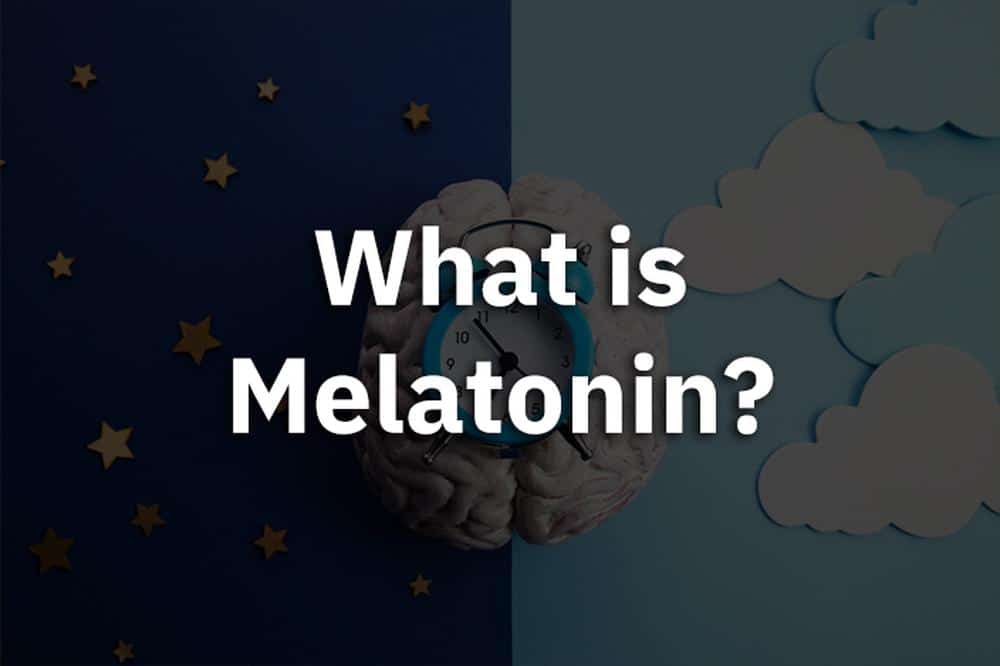To learn more about melatonin, keep reading below. We have also included some frequently asked questions and more detailed information about melatonin at the bottom, so make sure to scroll to the bottom of the page.
Melatonin is a hormone made by the pineal gland, located above the middle of your brain. It signals your body when it's time to sleep and wake up.
Melatonin levels increase at night when you're exposed to less blue light. This pattern of markedly elevated melatonin levels during the nighttime has led to its description as the “hormone of darkness.”
Aside from the melatonin produced naturally by the body, you can also opt to take melatonin supplements. These supplements can be found in the form of pills, liquids, and chewables. Our Sleep Soundly supplement contains the perfect amount of melatonin for optimal sleep (just a friendly reminder, it's crucial to take the correct dosage of melatonin).
What is It Used For?
Melatonin is commonly used to help with insomnia – difficulty falling and staying asleep. It can also be for delayed sleep phase disorder, a disorder where people have difficulty feeling tired before 2AM.
However, if you have serious sleep disorders such as obstructive sleep apnea, narcolepsy, or long-term insomnia, it's important to seek medical attention rather than relying solely on melatonin.
Experts are researching whether melatonin may be helpful for:
- Alzheimer's disease
- Cancer
- Nocturia (Nighttime urination)
- High nighttime blood pressure
- Sleep problems in children with autism spectrum disorders
How Safe Is It?
Melatonin is generally safe to use and causes fewer side effects than other sleep medications. However, a small subset of people may have side effects that can be intensified by taking high doses:
- Daytime sleepiness
- Headache
- Dizziness
- Anxiety
- Crankiness
- A "heavy head" feeling
- Stomach discomfort
- Short-lived depression
How Well Does It Work?
Individual reactions to medicines and supplements vary, so melatonin may work differently for each person. Its effectiveness depends on various factors, such as the amount of melatonin taken, sleep habits, and medical conditions.
It may be counter-intuitive, but lower doses of melatonin can be more effective.

